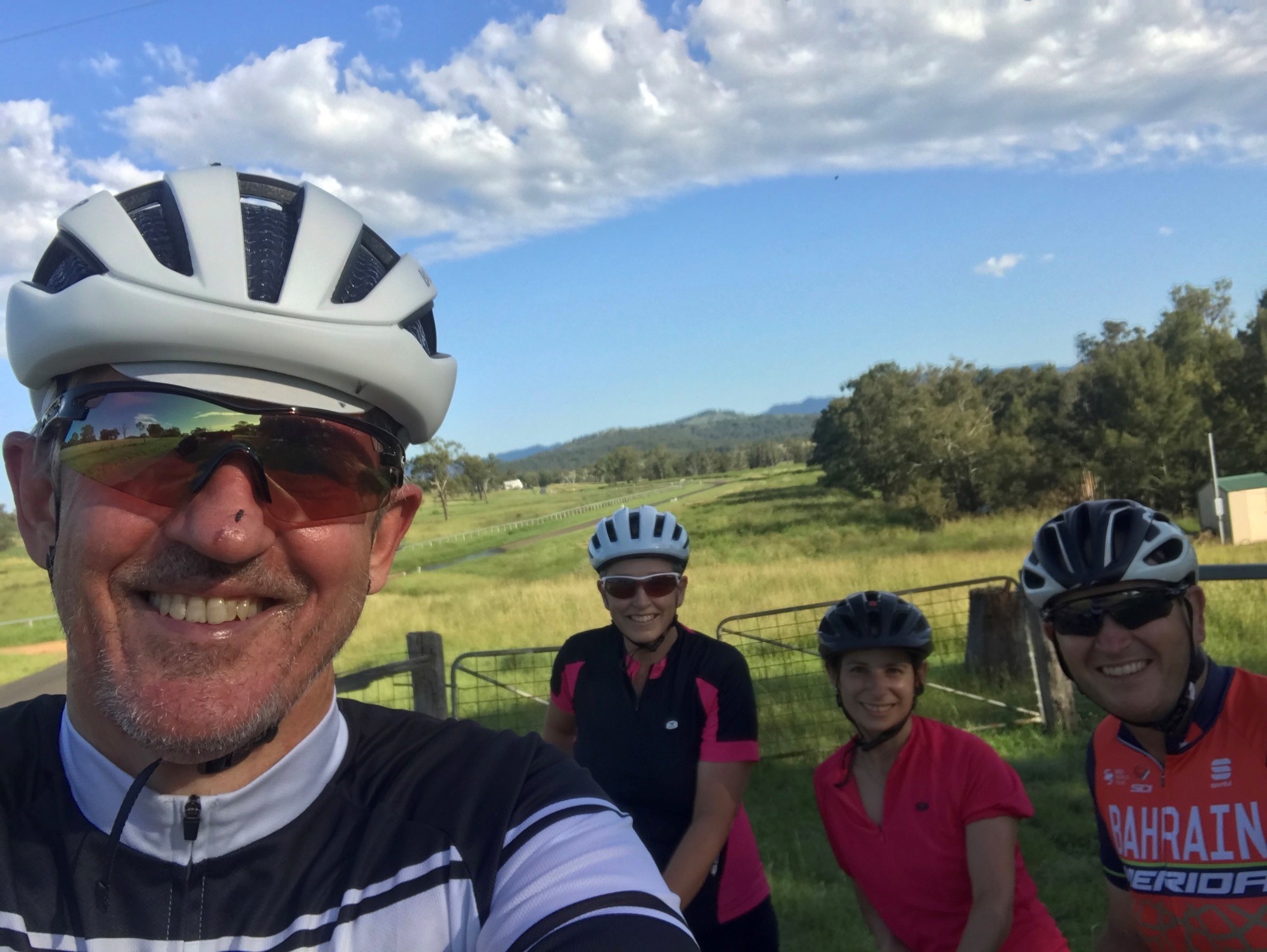
Thankful for our Vital Aeromedical Service
When it comes to recent incidents tasked by the Westpac Rescue Helicopter Service it is hard to forget about the story of Scone’s David Gatwood.
Dawn on the Monday of the 2021 Labor Day October long weekend across the Hunter Valley was cool and windy with some cloud but still fine, the kind of conditions that David and his regular cycling companions relished.
The cooler mornings made David’s regular ride that much more enjoyable, so it was easy to convince fellow riders Steve Wright and father and daughter Paul and Charlotte Heaton to accompany him on the ride on Middlebrook Rd through the outskirts of Scone.
The 40km round trip had gone well, with the group making good time in the cool conditions and after a brief stop for a drink break, they headed off on the final leg of their return home.
It was on this final leg that David hit a cattle grate at approximately 35 kilometres an hour.
David’s recollection of the accident was a loud bang that he described as ‘akin to a head on collision and I realised afterwards it was the sound of my helmet hitting the roadway.’
David didn’t lose consciousness, something he attributes to his helmet, a testament to any cyclist of any age that this piece of safety equipment is a lifesaver and dispensing with it as being ‘uncool’ is potentially a life and death decision.
Still slipped into his bike, David lay winded on the roadway.
He remembers being unable to move, and for a moment, staring at the sky and the moving clouds thinking how peaceful it was but as he struggled to breathe, he began to panic.
The other cyclists ahead of him stopped and turned around, returning to David who was gasping for air tangled in his bike on the road.
As Paul Heaton knelt at his mate’s side, David grasped the gravity of the situation – Paul’s ashen look on his face held no secrets as to the seriousness of David’s situation.
Paul tried to calm his friend best he could, telling him not to move, carefully removing his helmet and cradling his friends head whilst Steve called 000.
Local NSW Ambulance Paramedics arrived on scene and David remembers Mel and Ben were excellent.
“I knew I was in a bad way, as I could hear the urgency in their voices as they called for assistance from the Rescue Helicopter but they were so calming and reassured me as they knelt by my side that I would be alright and that the Rescue Helicopter had been tasked and was on its way,” he reflected.
David said hearing the helicopter approaching gave him a massive sense of relief and Ben and Mel were soon joined by the Helicopter’s Critical Care Medical Team.
“Having them arrive lifted so much stress from me at the time. I remember thinking I was in the best care possible and that was the reassurance I needed to just let them do what they had to do.”
He was treated, stabilised and airlifted to John Hunter Hospital where the surgeon recommended urgent surgery to stabilise his fractured back.
“I spent eight nights in the trauma ward where I quickly realised that there are people much worse off than me,’ he added.
“I wore a neck brace for six weeks but have a lasting legacy of the incident in the form of two titanium rods and a series of screws in my back.”
David’s long road to recovery didn’t go smoothly, being readmitted to hospital for an infection but he continues to make positive progress and is hopeful his ‘hardware’ may be able to be removed later this year.
“The takeaways for me from my accident are simple,” he concluded.
“If you do any sort of riding on a bike, wear a helmet and if you can help the Rescue Helicopter through donating, be it large or small, supporting an event or through workplace giving, do it.
“We are so fortunate to have such a vital aeromedical service available to us if we need it personally or for someone we know or love.”
David has donated to the Westpac Rescue Helicopter for the past two years through a WorkPlace Giving program through his employer.
